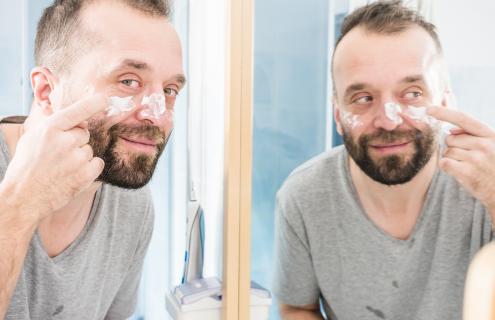
Winter often drives an increase in eczema symptoms, says Cheshire Medical Center Dermatologist, Gregory Seymour, M.D.
“The drop in moisture in the air dries out the surface of the skin,” Dr. Seymour notes. “That can be a trigger for inflammation.”
Eczema is an inflammation of the skin. It often looks like red, itchy skin, although it can show up in a number of different ways. These include dark-colored patches of skin, or areas of the skin that are rough, leathery, or scaly. Swelling can sometimes a symptom, too. In more severe cases, the skin can ooze and crust.
Eczema is very common, with more than 30 million Americans experiencing it each year. People who struggle with eczema lose some of the protective barrier function of their skin. This allows moisture to escape and can allow irritants in the environment to penetrate the skin, leading to overactivation of the immune system in their skin.
However, most of the time eczema can be prevented and managed with regular and gentle skincare practices.
“Keeping your skincare routine gentle and the daily use of moisturizer are two of the best practices in preventing and managing eczema,” says Dr. Seymour. “Overzealous cleansing or scrubbing is probably the most common pitfall people make while managing eczema. You also want to avoid irritants and triggers, such as harsh soaps that dry out your skin, or rough clothing, such as wool. Clothes that trap sweat on the body can also trigger eczema.”
Other practices to prevent and manage eczema during the winter:
- Taking temperate showers, as hot water can damage keratin, which helps skin retain moisture
- Avoiding soaps and moisturizers with artificial colors and fragrances
- Moisturizing within a few minutes of getting out of the shower
- Using a humidifier in the home
- Using unscented laundry detergents and avoiding perfumes
- Relaxation practices, like meditation, to reduce stress
For more support in managing wintertime eczema, consider visiting the National Eczema Association.